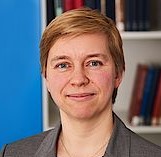No End to the Dead End? The Difficult Relationship Between the Ukrainian Orthodox Church and the Moscow Patriarchate

Regina Elsner is a researcher at the Centre for East European and International Studies (ZOiS) in Berlin.
A year ago, a few days after the full-scale invasion of Ukraine by the Russian army, I wrote a post here about the final split between Russian and Ukrainian Orthodoxy. This split was inevitable due to the “scandalous ignorance of the situation of the people in Ukraine, whom [Patriarch Kirill] claims to defend, a deliberate reversal of perpetrator and victim, and [the] open support of the ideology of the murderous regime” by the leadership of the Russian Orthodox Church (ROC).


